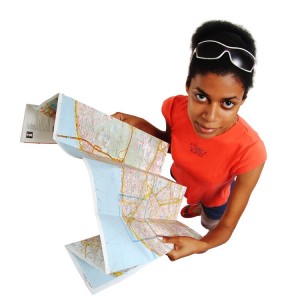
It took me awhile to see the truth, and much longer to admit the truth. But the truth of the matter is that many, many Blacks play for a living. By that, I mean, we spend our lives dreaming, but never visualizing and acting upon that vision. In a state of perceived wakefulness, yet soundly comatose.
If I had a dime for every Black brother and sister I met with dreams but with no vision or practical application for getting there, I’d be “nigga” rich beyond measure. Our people are so comatose that they can be presented with boundless opportunities to showcase and prosper from their real skills, but they’ll allow unfounded, irrational fears, selfishness and misplaced alliances to keep them from obtaining generational sustainability.
To some extent, I know what’s wrong with us: we have no “knowing” in our abilities. We have bought into the myth that we are non-contributors, that our people never did anything, that we are weak-minded and lazy and that all we want to do is have sex and make babies, which we promptly abandon.
We’ve been told wrong so long, we think wrong is right. That’s why we are okay with not pursuing the things in life that can not only make us happy, but provide independence for generations to come. It’s not that we don’t have it in us; it’s that we don’t believe we are truly capable of worthy endeavors.
It is a main reason why we seek the easier routes in life: sports, entertainment and MLM schemes. Those things that we have been “told” we do well, but things, that at the same time, never prosper us in ways that others profit from our participation in them.
William Rhoden’s book Forty Million Dollar Slave: The Rise, Fall and Redemption of the Black Athlete offers a critical and eye-opening analysis of how our bodies, our minds and our labors have been used for the betterment of disinterested, capitalistic groups. It is a must-read for parents with young children, especially young males whose highest aspiration is bouncing a ball, swinging at a ball or catching a ball—anything to escape the “hood.”
A revealing aspect of Rhoden’s book is that if we were to replace every instance of “athlete” with any other line of work regularly conducted by Blacks that mostly benefit other groups of people, the book would remain relevant and so would the circumstances.
I, more than anyone, want Black people to be free, but I can’t make Black people free, not physically, mentally or socially. I can only work on me and instill in my children a sense of confidence and dedication to finishing what they started. Hell, even to start something in the first place.
And that’s a major problem in our community. We don’t finish what we start and we don’t start something that we have the commitment to finish. We lie to ourselves constantly about what it is we really want for ourselves and for our families.
I know there are a lot of other groups of people who face these same obstacles, but they’ve found ways to overcome them. It puzzles me that the major overcomers of the Earth cannot do the same. But I do believe that if we got black to a Black sense of direction, we’d find in our children’s lifetime our roadmap to freedom.
The Hard Questions
- Is it because we have not and cannot admit that all of us have been psychologically damaged by our experience at the hands of caucasians that we continue to suffer our children from one generation to the next?
- What would happen if we admitted how traumatized we were and then took steps to remedy the wounds within and began to work on healing the wounds without that disproportionately affect our people around the world?
- What would happen if we stopped dreaming—the Amerikkan dream and any other illusionary ideology—and began visualizing our place in this world through a Black lens, using Black roadmaps to get us there?
~evolve~
Leave a Reply